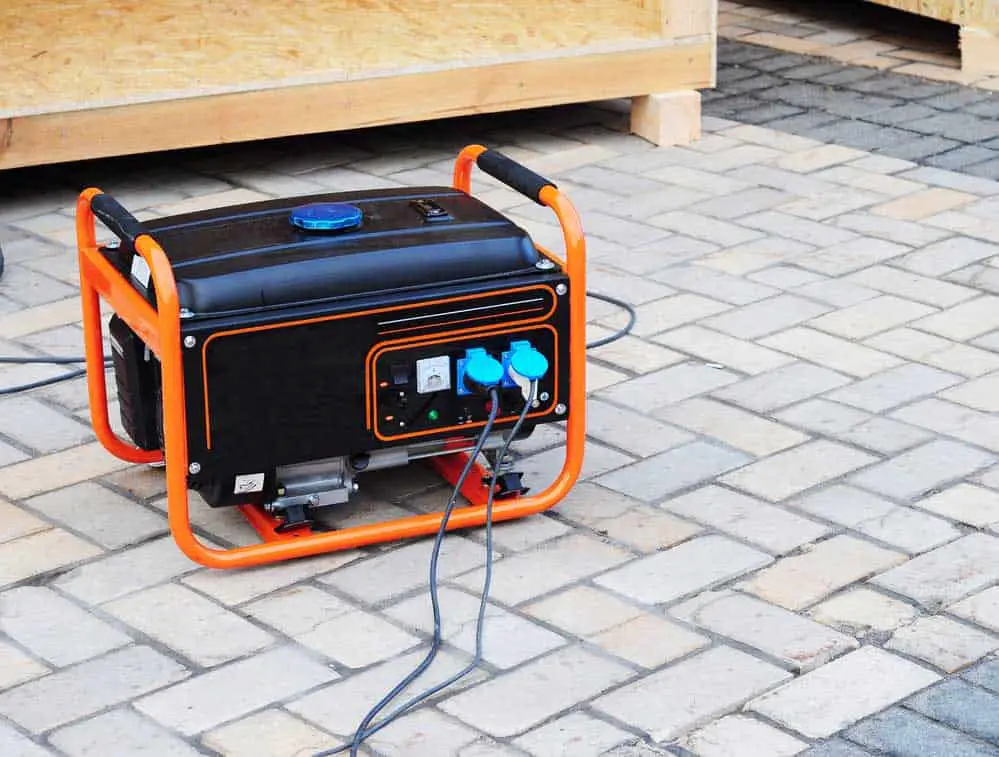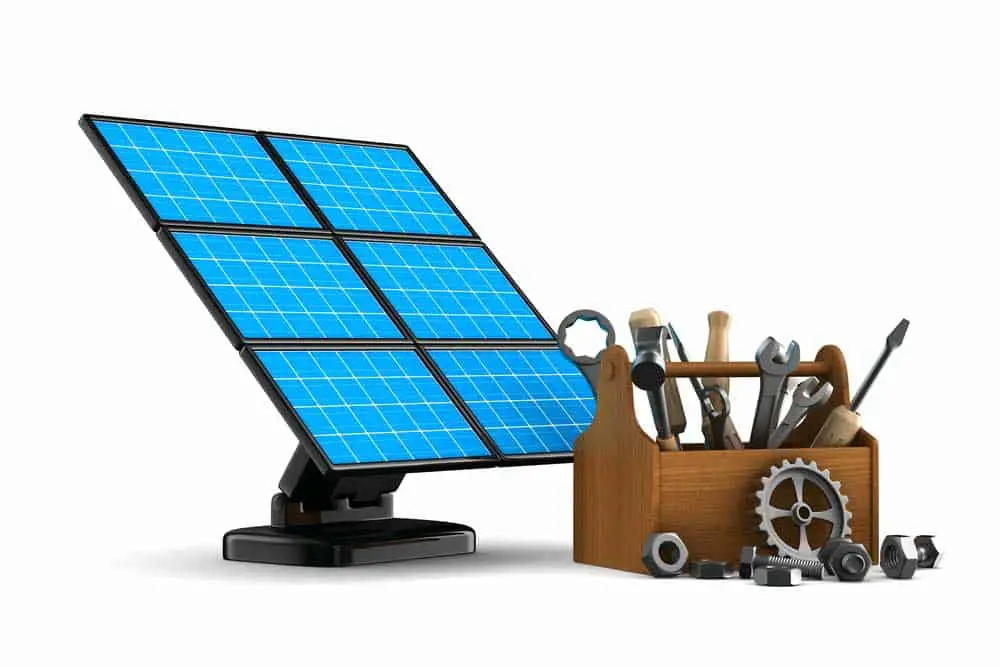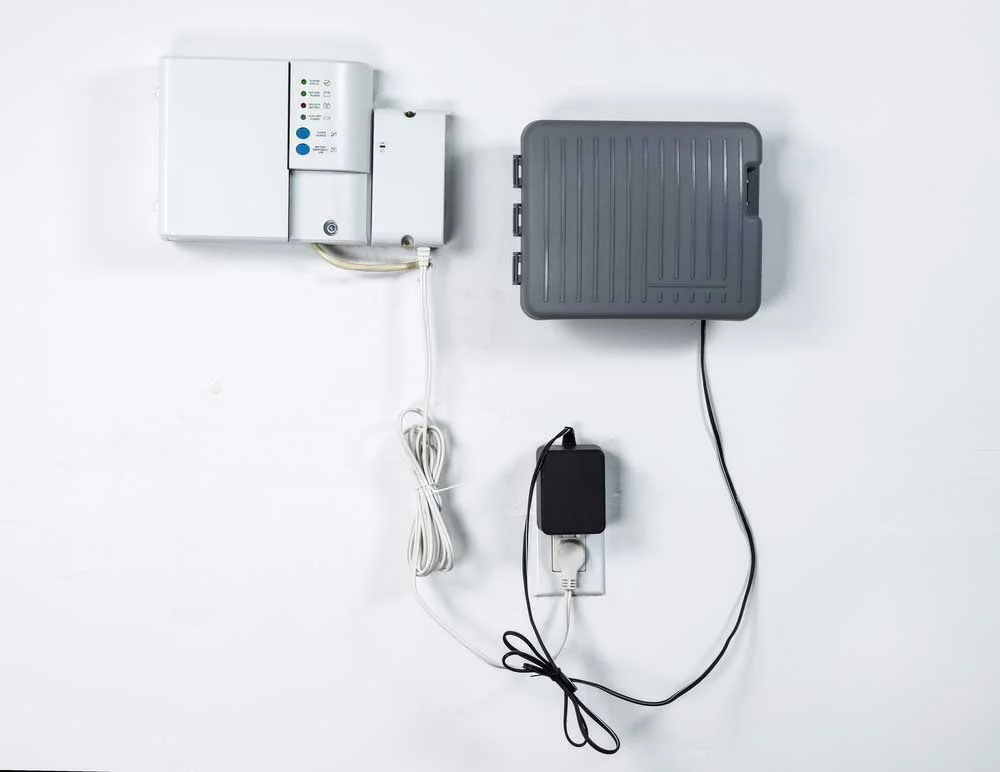In today’s world, it’s essential to prepare for anything. Hurricanes, power outages, and other unexpected events happen at any time. So, having a backup power option is essential. A battery backup and a generator both have pros and cons, but it depends on your needs as to which one is better for you. Let’s take a deeper look at the battery backup vs. generator comparison and see which is the best fit when looking for a backup power source.
What is a Battery backup?
A battery backup generator, or uninterruptible power supply (UPS), is a device that provides emergency power to electronic devices in power failure times.
A battery backup unit consists of one or more batteries, a charger, and an inverter. The batteries store energy, and the inverter converts the stored DC power into AC power that the load can use. The charger recharges the batteries when the main power backs up again.
Unlike a traditional generator, which uses fuel, a battery backup operates by electricity generated by a set of batteries. Therefore, they are environmentally friendly and reduce your carbon footprint.
Also, with a battery backup, you can reduce energy bills by shifting your electricity usage to the backup at peak hours.

Solar energy equipment system vector illustrations
What is Generator?
A generator is a mechanical device connected to your home’s electrical system that produces electricity using fossil fuels when the main power is out.
The most common type of generator is an internal combustion engine. This type uses gasoline, diesel, liquid propane, or natural gas to power a turbine. The turbine spins a magnet within a coil of wire, which produces an electric current.
For easier use, you can connect your generator to your home gas line, which will automatically start when there is a power outage.

Gasoline portable generator on the house construction site
Generator vs. Battery Backup: How are They Different?
Pricing
The upfront cost of a battery backup is higher than that of a generator. However, battery backups generally have lower operating costs than generators, as they do not require fuel.
On the other hand, generators have lower initial costs, but you must factor in the fuel cost.
Indeed, the cost of a battery backup varies widely depending on the unit’s size, type, and quality. Running an average-sized home on a battery backup would cost between $10,000 and $20,000.
For generators, the upfront cost can range from $7,000 to $15,000 but put in your mind that you will spend money on fuel every month.
Installation & Maintenance
Battery backups often require maintenance and are easier to install and maintain than generators. They do not require professional installation; they only need a transfer switch connected to your home’s electrical system.
However, if you install it on your floor or ceiling, you must hire a professional electrician, increasing the installation costs.
On the other hand, you must wire the generators directly to your electrical service panel, which requires professional expertise.
Regarding maintenance, battery backups require little to no maintenance. They have few moving parts, work silently, and require little gas or oil.
Generators, however, require regular maintenance to ensure they are operating correctly and safely. Furthermore, generators are not silent, as they rely on combustion engines, which can be very noisy.

Solar battery
Keeping your home powered
If you have enough fuel sources, a generator can keep your entire home powered no matter how long you use it. However, this may not be the case with solar battery backups.
As we mentioned, battery backups work with batteries, providing you with some hours of electric power before they need recharging.
Expected lifespan and warranty
Most battery backups come with a 10 years warranty, but they will lose some of their capacity over time.
For example, a solar battery with a 15 kWh capacity may only provide you with 10 kWh after several years. According to Tesla, they guarantee that the capacity of their batteries will remain above 70% after the 10 years warranty.
Generators are easier to estimate the lifespan. For example, a diesel generator may have 6,000 hours. Using the generator for a maximum of 5 hours per day can last you more than 10 years.
However, it will require regular maintenance and replacement of parts to ensure they operate safely and efficiently.
Battery Backup vs. Generator: Which is Best for You?
All in all, battery system backups are a better choice for most homeowners. They are easier to maintain and run, have a lower operating cost, and produce no noise.
However, a backup battery may not be able to power your entire home simultaneously; consider this when making a decision.
So, a generator is probably the better choice if you live in an area that frequently experiences power outages.
2022’s Best Home Battery Backups

Home Utility Systems with Battery Backup
The Tesla Powerwall
The Tesla Powerwall is the leader of the home battery market and comes with a 25-year warranty, so you can be sure it will last for years.
Tesla Powerwall app allows you to wirelessly control your energy usage patterns, making it easy to manage your power usage and save money.
LG Chem RESU
Its installation ability makes LG Chem RESU stand out from the pack. You can install it attached to the electrical grid or with a solar panel system, making it an excellent choice for anyone looking to go green.
Plus, it’s 94.5% round-trip efficiency is unbeatable! And despite its compact size, it still packs a powerful punch.
Generac PWRcell
With its ability to provide an instantaneous power surge to appliances, the PWRcell is perfect for those who want to be able to keep their homes running in any situation.
Even better, the PWRcell comes equipped with an app so you can always track your battery’s performance and savings.
If you want to go green and use a renewable energy source, you can hook the PWRcell to a solar panel system like the LG Chem RESU.
2022’s Best Home Generators

Home Generator
Westinghouse WGen7500
This ultra-compact generator is perfect for those who want to be able to take their power supply with them wherever they go.
You don’t have to be a mechanic to use this machine; with only minimal assembly required, it can give you 7500 W of reliable power.
Plus, it has 6.6 gallons of fuel capacity, so you can keep it running for up to 16 hours on a single tank.
Generac 20kW 6244
Generac 20kW 6244 is a house generator with an air-cooled aluminum enclosure and technology that allows it to safely and efficiently power any household item.
Not only can a generator power critical loads in your home, but it can also power your entire home.
DuroMax XP12000EH
With DuroMax XP12000EH, you can select your preferred method of powering up – gasoline or LP – and get going.
Plus, the CO Shutdown Sensor is excellent for safety, automatically shutting off the generator if there are dangerous levels of carbon monoxide.
Also, it’s durable enough to withstand projects on the job site yet compact enough for easy energy storage.
Conclusion
When choosing another energy source between a battery backup and a generator, the right choice depends on your specific needs and budget.
By weighing the pros and cons of each option, you can make an informed decision that will best meet your needs. We hope this guide can help you make the right choice for your home power needs.
